This post is for all of the aspiring dietitians out there.
Yes, you!
I've been exactly where you are right now.
Interested in nutrition, contemplating changing careers, but not entirely sure what that would entail, or what your job prospects would look like afterwards.
This post will clarify everything.
I will show you, step by step, how I changed careers at age 24 and was officially a registered dietitian by age 27.
I'll break down my exact timeline. The courses I took. The struggles I went through. The victories I shared.
My goal is to show you that it is never too late to chase your passion & live a life that fills you up and brings you joy each and every day.
If you've ever contemplated become a dietitian, please read on.
And if you aren't entirely sure what a registered dietitian is, check out my previous post, "What Is A Registered Dietitian Nutritionist?"
My path, in a nutshell:
After graduating from college with a degree in Psychobiology from UCLA, I was entirely convinced that I was meant for a life of academia. Conducting research, teaching, and traveling around the country for various career opportunities sounded like a dream come true.
Then (as I highly recommend), I "tried out" living that lifestyle for 2 years.
I left sunny southern California & landed in hot & humid / rainy & cloudy Pittsburgh, Pennsylvania, with a position managing a Health Psychology research lab at Carnegie Mellon University.
While I enjoyed the work, there was always a nagging feeling in the pit of my stomach that it wasn't quite right. I felt a little bit trapped in the lab, and felt deep down that I was meant for a career that would place me more in the public eye, spreading a meaningful message & helping people improve their lives.
Oh yeah, and that dream about traveling around the country for various job opportunities? Eff that! Turns out, I missed California SO BADLY and realized I actually wanted full control over where I lived and worked & wouldn't be okay with landing in a random city for a new career opportunity.
So what did I do? I listened to my gut.
Yep, that little voice inside that tells you when things are right or wrong.
I meditated on my future, visualized the life I wanted, and thought about my deepest passions, dreams, and desires.
I realized that I was most passionate about food.
I wanted to teach and inspire other to cook and enjoy whole foods, & educate them on how awesome they would feel by doing so!
So I started to do some research.
I think I probably google searched something like "careers in nutrition," and that's when I discovered registered dietitians!
Until then, I honestly had never heard of the term "registered dietitian."
But I landed on some interesting websites that helped me learn more:
- What is a Registered Dietitian Nutritionist from The Academy of Nutrition & Dietetics
- Become an RDN from The Academy of Nutrition & Dietetics
- The Makings of a Registered Dietitian from the blog Kath Eats
These articles helped me understand what it would take to change careers & showed me that it WAS possible!
I also wanted to see what "a day in the life of a dietitian" was really like.
So I called up a few dietitians!
Literally every single person I asked to talk to was super accommodating & kind. I asked them how they became dietitians, what a typical day looked like for them, and if they had any advice for someone just starting out.
(Thanks Lindsay Stenovec at Nutrition Instincts, Heather Mangieri at Nutrition Check Up, and the wonderful assistant for Joy Bauer for talking to me about your careers, way back in 2010!)
After doing my research...
I realized that there were 2 types of educational programs for becoming an RD:
- Coordinated Programs (which include the required coursework to become a dietitian AND the required 1200h internship, conveniently run through the same school)
- Didactic Programs (which only include the nutrition coursework) + A Separate DICAS Internship (which you have to apply & interview for separately, and currently only has a 50% match rate- eek!)
Since I had already decided that I didn't want to move away from California again, my goal was to get accepted into a coordinated program so that I wouldn't have to worry about applying to internships all over the country and possibly having to move again.
I decided that I wanted to start a Masters Degree in Nutritional Science in the Fall of 2011.
But I had to do a few things first!
- Figure out which schools I wanted to apply to.
- Take the freaking GRE.
- Show that I was serious about the field of nutrition & dietetics.
- Gather letters of recommendation, write my personal statements, and send those applications IN!
Step 1: Where To Apply??
I used the accredited program search tool on the EatRightPRO website to find masters programs to apply to. (This is important, since ONLY accredited programs will qualify you to apply for an internship & take the RD exam).
My top 3 choices were:
- California State University, Los Angeles, M.S. in Nutritional Science
- San Diego State University, M.S. in Nutritional Science
- University of California, Davis, M.S. in Nutritional Biology
I chose these programs for a few reasons:
- They were in California... duuh! I wanted to move back to my home state & reestablish my roots. My dream was to get into Cal Sate LA so that I could be in Los Angeles again.
- Cal State LA was one of the only schools in California with a masters-level Coordinated Program that I would be eligible to apply for during the following year (once I completed a few more prerequisite classes at Cal State LA). The only other school in California with a masters coordinated program (at that time) was Loma Linda, but with a $35,000/year price tag, I didn't think I could afford it. Now USC also has a program (through the school of gerontology, LOL). It's probably pretty fabulous, & the quality of education is probably very high, but it costs even more than Loma Linda ($38k/year).
- They were affordable. Since I graduated from high school in California, I was eligible for in-state tuition, even though I was applying from out of state. That meant the tuition at the state schools would only be around $7,000 per year, and the UC around $13,000. I briefly contemplated applying to private schools out of state, like NYU (and I am sure I would have LOVED IT), but I couldn't justify dropping $30k per year, PLUS cost of living in NYC. It just didn't seem like smart move when new RDs only make around $50,000 starting out, in many positions.
- I wanted to make connections with people in the area I wanted to live. Ideally, I wanted to settle down in Los Angeles, so the goal was to make connections with other dietitians & students in that area who shared similar dreams and aspirations. This ended up being a great plan! Most of the people in my graduate program are still in the Los Angeles (or at least California) area, so it was a great way to start out on the right foot in my career. Plus, if you complete your internship in the area you want to work, you'll already have a few connections in the field, and if you really impress your preceptors, it could turn into a job opportunity afterwards (It did for me!).
Step 2: Take the GRE.
Womp, Womp...
This was probably the least exciting part about preparing for grad school. I spent many many weekends memorizing vocabulary words & taking practice tests.
I did well on them, but I knew that my scores wouldn't play that large of a role for the programs I was applying for.
Cal State LA only required a minimum score of 400 (out of 800...) on Verbal, a 500 (out of 800) on Quantitative, & a 3.5 (out of 6) on Analytical Writing. Safe to say I blew those numbers out of the water 😛
From what I heard, GRE scores are much more important for Ph.D. or research-based programs than for the types of masters programs I was applying to. UC Davis probably would have been the school that was most strict about it, out of the 3 I applied for. Basically, do your best, but don't stress TOO much over the GRE.
Step 3: Show Your Passion.
Since I was transitioning from a career in neuroimaging research to the seemingly unrelated field of nutrition, I thought it was important to show that I was serious & dedicated to my passion for food & wellness.
If you are applying to graduate school for nutrition, it is really important to set yourself apart.
You could be competing against other people who actually have their bachelors degree IN nutrition & have been working/volunteering in the field for years.
What makes you special? What's your unique spin? Where have you worked or volunteered? How do you show your passion?
I decided to start a blog.
Seriously, my first blog was a mess. I coded it myself, so it was a gross blob of awkward squares of colors that didn't really go together, and probably looked like it was straight from the 90's. But hey. It was a start!
While it might not have looked aesthetically pleasing, I used my blog as an outlet for my passion for food. I developed (and attempted to photograph) recipes, I included fun nutrition/foodie facts with each post, & would occasionally post articles discussing & critiquing the latest research (this was a strength of mine, since I was working in research, so I thought it would be a great way to show my voice & critical thinking skills).
I get it. Putting yourself out there (especially before you have even gotten into a nutrition program) is totally frightening.
You will get tons of people emailing/facebook messaging you with nutrition questions, even though you haven't even started school yet 😉
You will also get haters. It's inevitable. But the fact is, you will literally NEVER please everyone. It is impossible. So focus on posting your truth. Other people who are on the same wavelength in life will find you, and support you, and become the most awesome tribe of people you could ever be around. Just wade through the bullshit & stay strong!
If this makes you feel better, this is the first photo I posted on said blog:
YES THAT REALLY HAPPENED.
Sigh.
But the point is, start before you're ready.
Learn along the way. You will naturally improve over time.
And the truth is, in the beginning, it will probably only be you, your best friend/significant other, and your mom reading your blog. So don't sweat it.
You also don't have to blog!
That was just the way I chose to show my passion. You could also volunteer in your community, shadow a dietitian, become a research assistant in a lab, TA for classes if you're still in school, take classes or acquire other certifications related to the field, work in a hospital or school district foodservice department, etc. etc. etc.
Again, just listen to your gut. It will reveal the right path for YOU.
Whatever you choose, try to get as heavily involved as you can prior to applying to school. You want to be able to include these activities in your applications & talk about them in your personal statements!
Step 4: Officially Apply.
Check each school's website to see what materials they require.
Start this process early on, since you'll probably need to request transcripts from your previous school(s), get letters of recommendation, and write a few personal statements.
A tip for getting good letters of rec:
Create a letter-writing kit for each person you're requesting a letter from.
I recommend using a 3-ring binder, and using tabs to separate the materials for each school you are applying to.
Include the following materials in your binder:
- Tab #1: All About You. In this first tab, include:
- A copy of your personal statement. This is so your letter writer knows why you are passionate about nutrition, and what your goals are in the field. There's nothing worse than having a vague letter, or one that contradicts your own personal statement! Leave nothing to chance & make sure you are both on the same page.
- A copy of your CV or resume. Include this for easy reference, so your letter writer can quickly review your past history & make sure they aren't leaving out anything important in their letter.
- A list of your best qualities & accomplishments. Hey, this is the time to humble-brag! Letter writers are often swamped with requests from students. They might be spending a late night writing your letter, so you want to make it as easy as possible for them! In this list, include what you perceive to be your best qualities. Also remind your letter writer of occasions when you did awesome work for them, stepped up to show your leadership, or were otherwise an amazing person. While these moments might seem obvious to you, your letter writer will appreciate the memory-jog & the letter they write for you will shine with specific examples of how wonderful you are.
- Tab #'s 2 through infinity: Create 1 tab per school you are applying to.
- In each tab, print out a description of the program you are applying to (what the degree you would receive is, how many people are admitted, requirements for admission, what that particular program specializes in.)
- This way, your letter writer can tailor each letter to each program. If one is heavily clinical, they can focus on your skills and personal qualities that would make you a great clinical dietitian. If another program is highly community or foodservice oriented, they can change their letter slightly to highlight those qualities.
- Make sure the letter deadline is CLEARLY HIGHLIGHTED on the front page within this tab.
- Include a pre-addressed & stamped envelope for them to send the letter directly to the school's application department. Your letter writer will LOVE THIS. It's just a little thoughtful touch that saves them time & effort.
It's also a good idea to send friendly reminders about 1 week prior to each deadline to make sure everything is on track (if you haven't heard from them already).
Also, don't forget to send a thank you note & small gift to your letter writers afterwards!
In the Spring of 2011, I was accepted into all 3 programs.
I chose Cal State LA.
The catch- I was only "conditionally" accepted until I completed all of the pre-requisites for the masters program:
- Human Anatomy (with lab)
- Human Physiology (with lab)
- Chemistry
- Organic Chemistry
- Nutritional Aspects of Biochemistry
- Microbiology
- Foundations of Food
- Fundamentals of Human Nutrition
Of these, I had completed chem & ochem at UCLA, but none of my other science classes would transfer.
This means that I had to complete allll of the courses in red before I would be "officially" enrolled in the masters program. Until then, I would just be a graduate student at Cal State LA, but not officially on the masters in nutrition track.
In addition, I also had to complete the following "core nutrition" classes that were required to be eligible for the RD exam. These were all technically undergraduate level classes, but I would be taking them as a graduate student.
- Experimental Foods
- Medical Nutrition Therapy I
- Medical Nutrition Therapy II
- Advanced Nutrition I
- Advanced Nutrition II
- Nutritional Assessment Laboratory
- Principles of Sociology
- Econ
- Intro to Psych (transferred from UCLA)
- Cultural Cuisine
- Maternal & Child Nutrition
- Institutional Food Service I
- Institutional Food Service II
- Community Nutrition
- Management Principles in Dietetics
- Professional Interactions & Writing Skills
Once ALL of these classes were complete, I would be eligible to start my internship & take my masters level classes:
- Research Concepts & Methodology in Nutritional Science
- Advanced Problems and Topics in Nutritional Science
- Advanced Topics in Dietetic Management
- Advanced Topics in Food Science & Technology
- Plus 8 units of electives, graduate research, or fieldwork
Quite complicated, huh?
Here's how I did it:
In a nutshell...
- Year 1: Took pre-requisite courses & a few core nutrition classes at Cal State LA. Applied to the Coordinated Program & got accepted.
- Year 2: Started the Coordinated Program! Completed the rest of the core nutrition classes.
- Year 3: Completed my internship & did my masters classes at night.
- Became a dietitian!!
Before I started Year 1 - Summer 2011:
I moved back to the Bay Area & lived with my parents for the summer.
I took the following classes at community college in Oakland:
- Human Anatomy
- Human Physiology
I chose those 2 classes because they were pre-requisites for almost all of the other nutritional science track-classes at Cal State LA. If I didn't have those completed prior to starting in the Fall, I would be set back by an entire school year.
At the end of the summer, after I was done with summer school, I moved down to LA & got ready to start at Cal State LA.
Year 1 - Fall 2011:
I officially began classes at Cal State LA!!!
I took the following classes:
- Nutritional Aspects of Biochemistry
- Foundations of Food
- Fundamentals of Human Nutrition
I also took a writing exam on the weekend, which is required of ALL students at Cal State LA... yes... even grad students who have already passed the GRE Analytical Writing... sigh.
Year 1 - Winter 2012:
- Speech
- Microbiology
- Maternal & Child Nutrition
During this quarter I also started volunteering for a well know Los Angeles dietitian, Alyse Levine. At the time, she was working on creating her Eating Reset online nutrition counseling program. I started out helping her find / evaluate research articles on topics she wanted to cover in the program (yay, research background!!), and this eventually led to a paid opportunity to create & photograph the recipes for her program!!
So, even though I wasn't done with the pre-requisite courses yet, I knew I would have them done by the end of the school year. That meant I would be eligible to start the 2-year Coordinated Program in Fall 2012!!!
During this quarter I applied to the Coordinated Program at Cal State LA (it required another round of personal statements & letters of rec), which, if I got accepted, would start in Fall 2012.
Year 1 - Spring 2012:
I took the following:
- Economics
- Experimental Foods
- Principles of Sociology
I also found out that I was accepted into the Cal State LA Coordinated Program!!!!
The Cal State LA Coordinated Program takes 2 years:
Year 1: Taking your regular nutrition classes on campus (which I would have been taking anyways) + a weekly seminar with the other students who were accepted in your CDP class.
Year 2: Completing your internship Tues-Thurs @ locations across the LA area + attending class on Mondays.
Hooray!!
I took Summer 2012 off & just worked/ saved up money.
Oh yeah, check me out in my lab coat & hair net, measuring the weight of some gluten-free chickpea flour cookies.
Year 2 - Fall 2012:
Back to school at Cal State LA again! But now I was finally done with the pre-requisite courses & was officially a masters student in the Coordinated Program!
I took the following courses:
- Cultural Cuisine
- Communication Skills in Dietetics (a course that only people in the coordinated program take)
- Institutional Food Service I
- Advanced Nutrition I
A few textbooks that never left my side...
Year 2 - Winter 2012:
- Institutional Food Service II
- Medical Nutrition Therapy I
- Advanced Nutrition II
- Nutritional Assessment Lab
Year 2 - Spring 2012:
- Medical Nutrition Therapy II
- Community Nutrition
- Management Principles in Dietetics
Year 2 - Summer 2013:
This time I couldn't take the summer off because I had one more required class to finish before I could start my internship:
- Professional Interactions & Writing Skills
During this time the members of the coordinated program also met on campus every other week to go over clinical case studies to prepare us for our internships in the Fall.
Me & my fellow RDs-to-be preparing for a professional presentation.
Year 3 - Fall 2013:
Time to start the internship!!!!
At Cal State LA we had a new internship site every quarter.
- 1 quarter clinical (at a hospital)
- 1 quarter food service (at a school district or hospital)
- 1 quarter elective
My first rotation was at Little Company of Mary San Pedro. I went to the hospital every Tuesday, Wednesday, & Thursday and shadowed/worked alongside the clinical dietitians.
I was exposed to LOTS of clinical experiences & learned the ins & outs of hospital work. I worked in the critical care unit (mostly with enteral and parenteral nutrition- where patients receive nutrients through a feeding tube or intravenously). We were responsible for calculating the patient's needs based on their condition & providing a recommendation to the doctor.
I also worked in the psych ward, rehabilitation unit, regular floors, & long term care. This hospital also had a drug & alcohol recovery center across the street, so I was able to give a nutrition education presentation there. I also worked a little bit in the kitchen, signing off on special-diet menus & learning how the systems work. I gave a presentation to the kitchen staff on dietary fats & why certain patients need modified diets, and I also did 2 clinical case studies on actual patients.
During this year we also had class every Monday where we would debrief & discuss our experiences & have a guest-speaker come & speak about their career in dietetics.
It's me! The dietetic intern!
Year 3 - Winter 2014:
I was placed in my elective rotation with Melissa Halas Liang @ SuperKids Nutrition!
During this rotation I was largely able to work from home: writing, editing, preparing presentations, & doing research on topics revolving around children's nutrition. I got to do some fun, out of the box things, like review a couple cookbooks & nutrition books & interview the authors. I loved it!
A few of the books I got to review / authors I got to interview.
It was very fateful that I got the work from home rotation that quarter, because I was also dealt a crazy blow.
Cal State LA was getting audited by ACEND that quarter, and they decided that we would not be allowed to sit for the RD exam until we had completed NOT just the RD coursework & internship hours (like we thought & had been told the entire time), but ALSO our entire masters degree!!
SHIT!
I originally had planned to spend a whole 'nother YEAR at Cal State LA, completing my masters degree & (hopefully) working somewhere as an RD!
But now, with these new requirements, I had to complete my masters degree & write my comprehensive exam (a 30-page dissertation-type research paper on a topic of your choice) in the next 6 months!!!
So, I took my masters classes in the evenings AFTER having already worked an (unpaid) 8-hour day, and then did my homework on the weekends.
Needless to say... life was rough...
I chose to complete my 30-page comprehensive exam on the topic "Diet & Depression," and researched & wrote the entire thing over my Spring Break. (so much for a break!)
My life as an intern / masters student.
Year 3 - Spring 2014:
My final quarter at Cal State LA!!!!
I completed my foodservice rotation with a combination of hours at South Pasadena Unified School District & with Melissa Halas-Liang again.
This was a really fun rotation. I spent about half my time at South Pasadena High where I learned how to run a foodservice operation. They also happened to be getting audited by the state to make sure they were complying with the National School Lunch Program "Healthy, Hunger Free Kids Act" Standards, so I got to prepare and organize a ton of documentation for the reviewers (such a good learning experience!).
With Melissa, I got to help create posters that highlight the new school lunch standards, created a nutrition-related lesson plan that I taught for a few days to a class of 3rd graders, and I even got to interview the USDA Under Secretary about the summer foodservice program & write an article about it.
During this time I completed my evening masters classes & got all my paperwork submitted to apply for graduation (phew!).
The last day of our masters class!!!!
Year 3 - Summer 2014:
I graduated with my masters in nutritional science & was eligible to sit for the RD exam as soon as all of my paperwork was processed!!!!!!!
A few weeks after graduation we came back to campus to attend the Inman Review (a very expensive prep course, which was required as a part of the Coordinated Program). I am a very independent studier, so I didn't find this course very helpful... She literally just read the notes aloud to us... I would have preferred to read & study them on my own. The practice questions were a good starting point... but I also downloaded a few apps that were just (if not more) helpful.
We got the approval to sit for the RD exams in mid-July (I got mine July 17th), roughly 1 month after graduation.
The exam appointment times were booked up a few weeks in advance, so I scheduled mine for July 29th, 2014.
I spent 5, 6-hour days reviewing & taking notes on the Inman Review content (30h total), and then I went through and answered every single multiple choice question (there are hundreds!).
After that, I downloaded the Upward Mobility Registered Dietitian Exam Prep ($4.99 for 350 questions + explanations) & the Med Preps LLC Registered Dietitian Exam Prep ($19.99 for 1900 questions + explanations) and went through all of those.
Then I took the exam and I PASSED!!


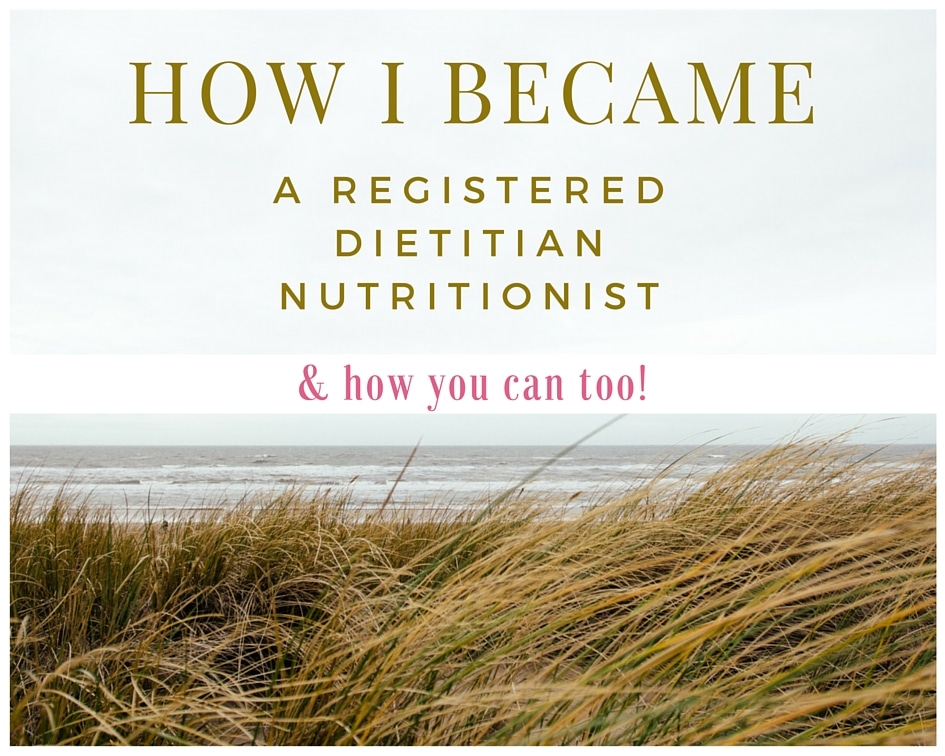
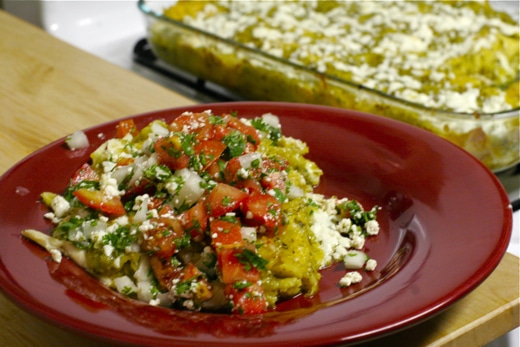
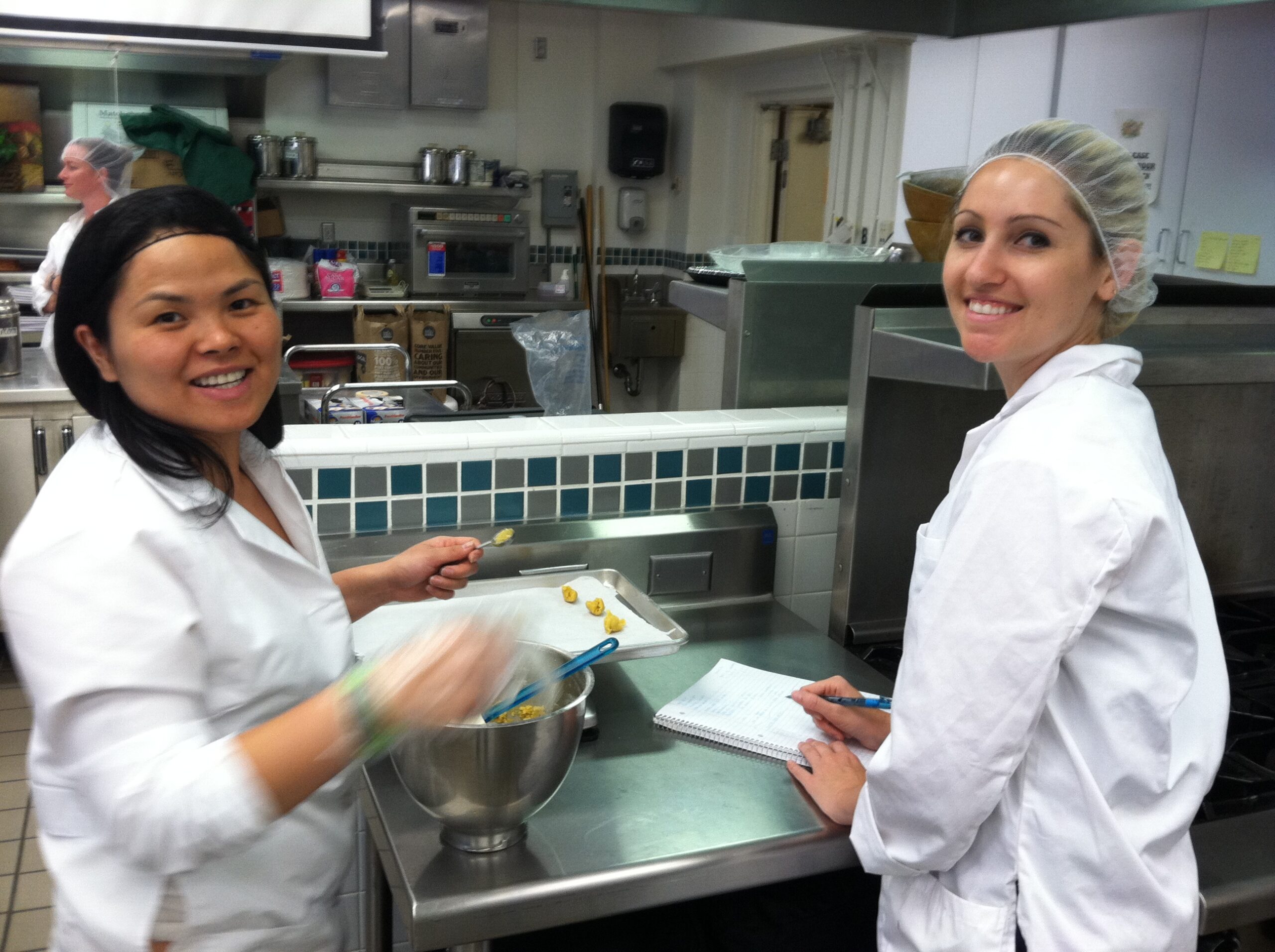
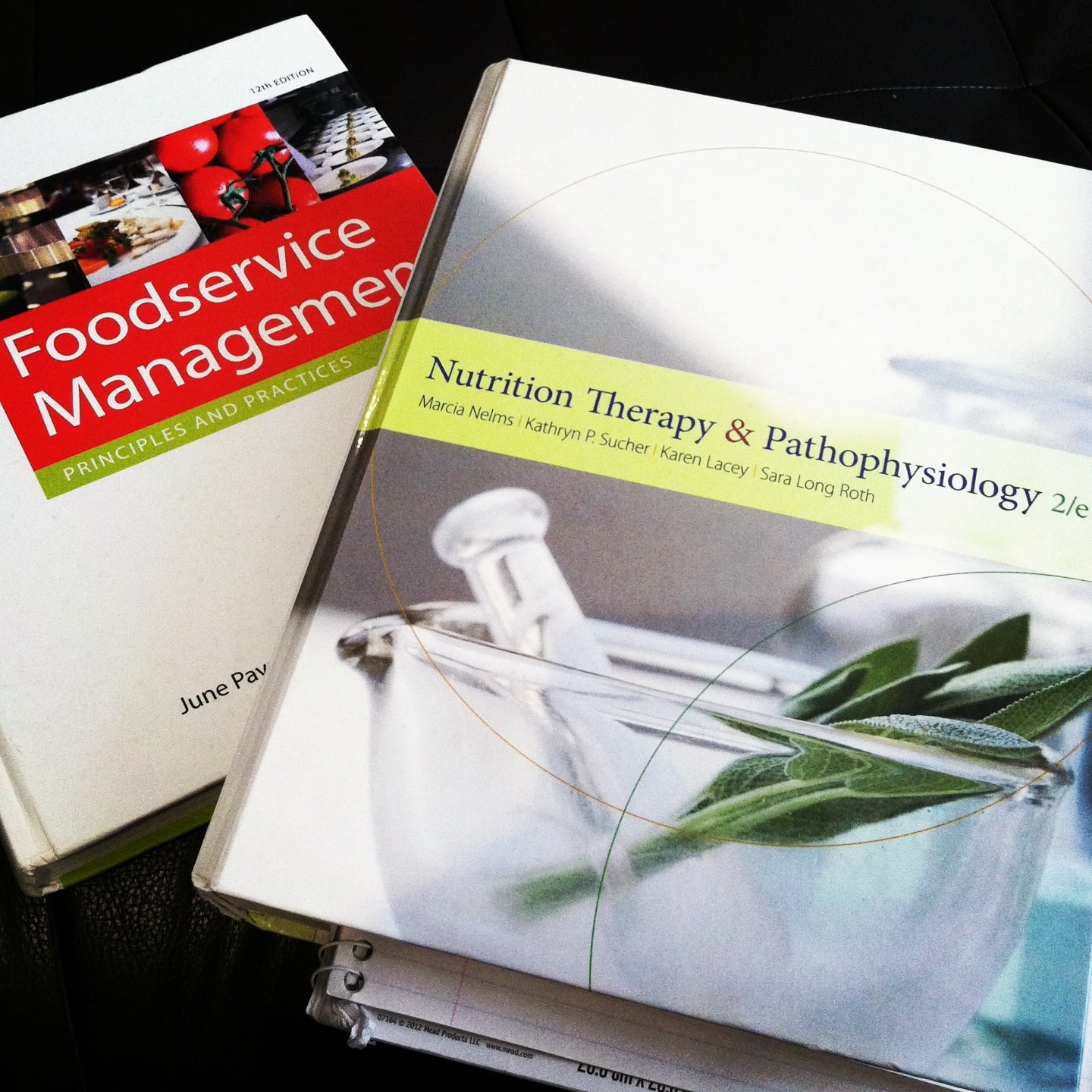

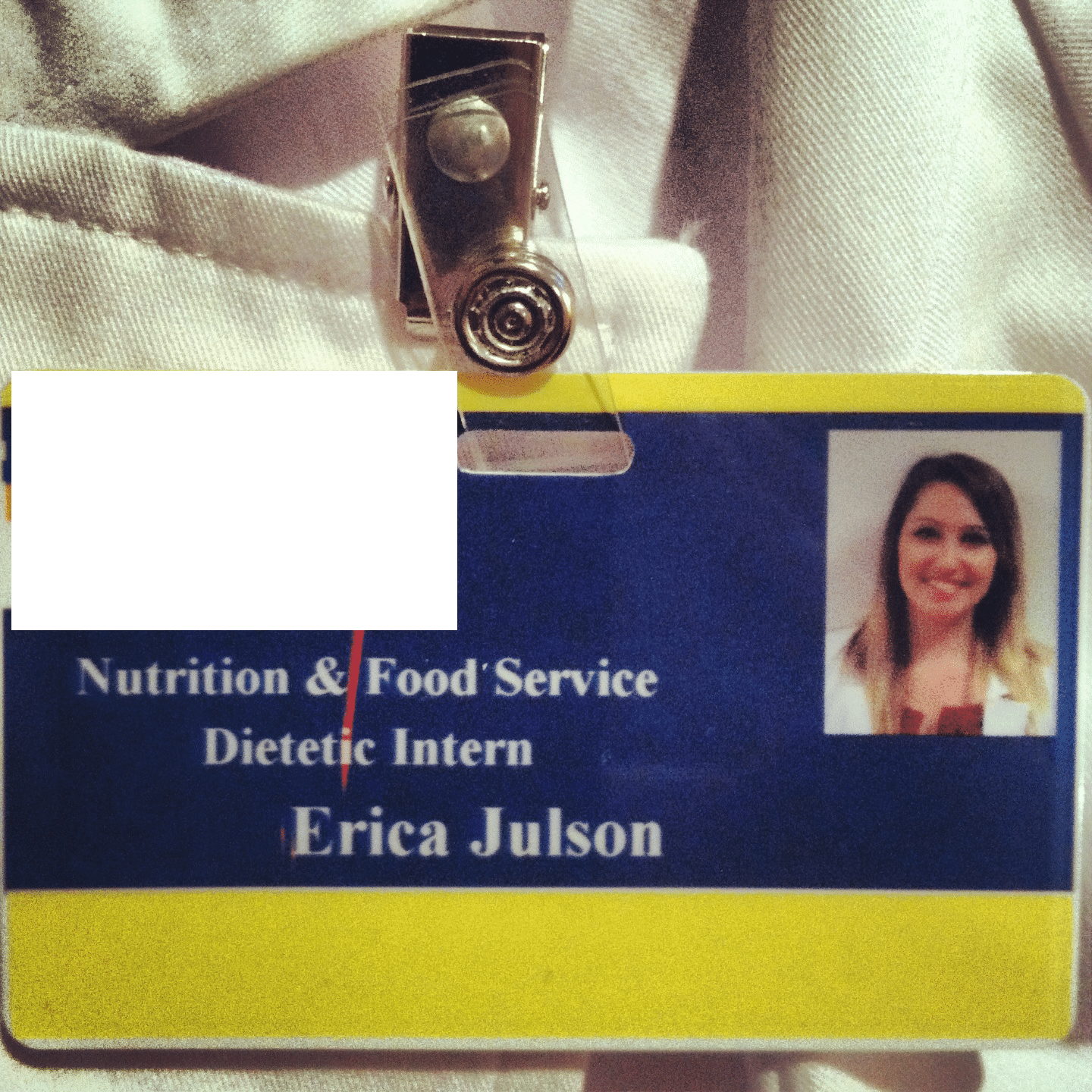
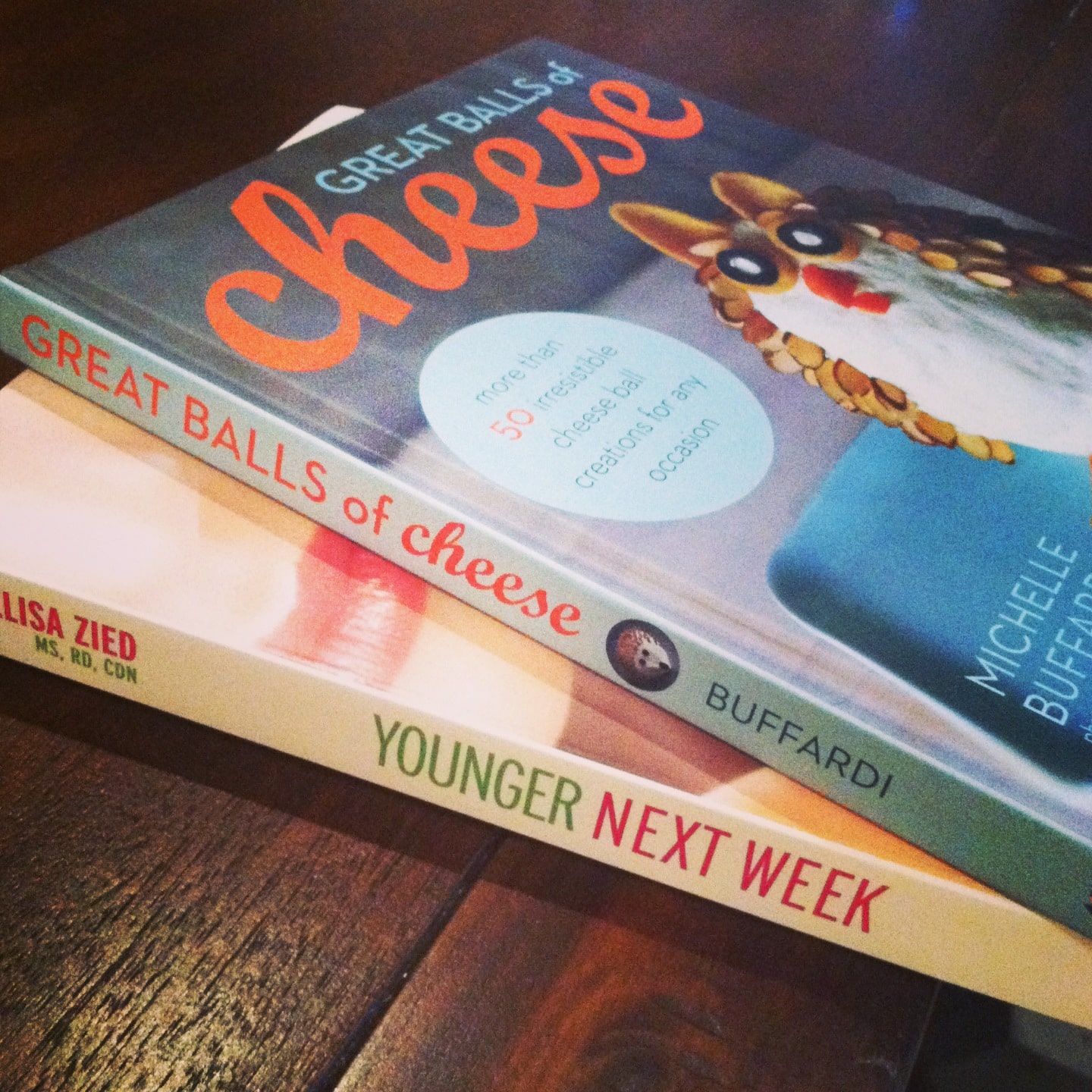
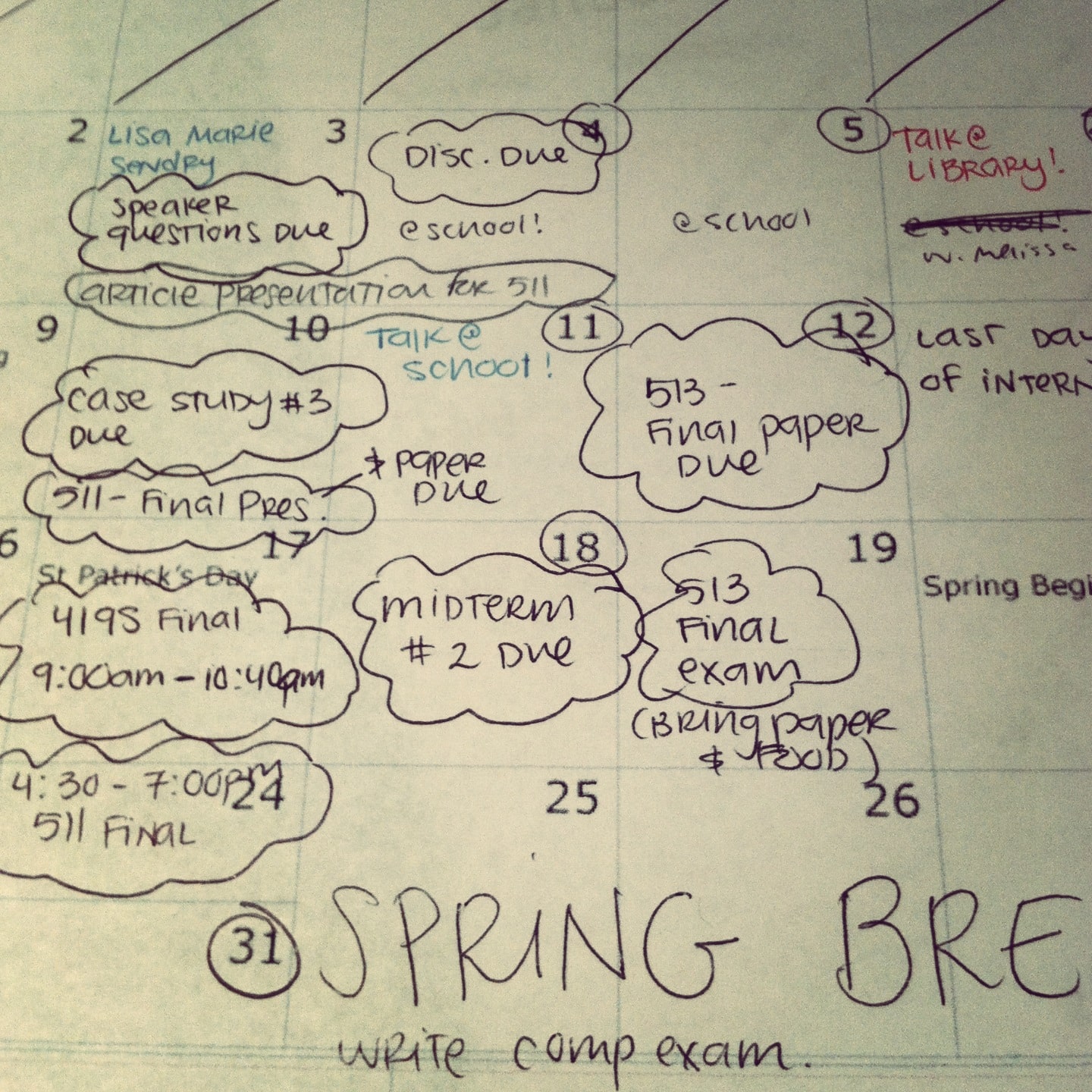







Vanica
Hi, could please let me know can i be eligible for becoming a dietician as my background is not of sciences. I have done physics and maths at high school level and thereafter my grad and postgrad in computers.
Megan
Inspiring!!! Thank you for sharing your story!!!
Fernando Vergara
Awesome well organized story